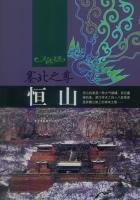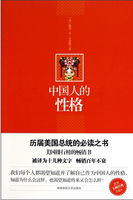The real thing for the student is the life and environment that surrounds him. All that he really learns he learns, in a sense, by the active operation of his own intellect and not as the passive recipient of lectures. And for this active operation what he really needs most is the continued and intimate contact with his fellows. Students must live together and eat together, talk and smoke together. Experience shows that that is how their minds really grow. And they must live together in a rational and comfortable way. They must eat in a big dining room or hall, with oak beams across the ceiling, and the stained glass in the windows, and with a shield or tablet here or there upon the wall, to remind them between times of the men who went before them and left a name worthy of the memory of the college. If a student is to get from his college what it ought to give him, a college dormitory, with the life in common that it brings, is his absolute right. A university that fails to give it to him is cheating him.
If I were founding a university--and I say it with all the seriousness of which I am capable--I would found first a smoking room; then when I had a little more money in hand I would found a dormitory; then after that, or more probably with it, a decent reading room and a library. After that, if I still had money over that I couldn't use, I would hire a professor and get some text books.
This chapter has sounded in the most part like a continuous eulogy of Oxford with but little in favour of our American colleges. I
turn therefore with pleasure to the more congenial task of showing what is wrong with Oxford and with the English university system generally, and the aspect in which our American universities far excell the British.
The point is that Henry VIII is dead. The English are so proud of what Henry VIII and the benefactors of earlier centuries did for the universities that they forget the present. There is little or nothing in England to compare with the magnificent generosity of individuals, provinces and states, which is building up the colleges of the United States and Canada. There used to be. But by some strange confusion of thought the English people admire the noble gifts of Cardinal Wolsey and Henry VIII and Queen Margaret, and do not realise that the Carnegies and Rockefellers and the William Macdonalds are the Cardinal Wolseys of to-day. The University of Chicago was founded upon oil. McGill University rests largely on a basis of tobacco. In America the world of commerce and business levies on itself a noble tribute in favour of the higher learning. In England, with a few conspicuous exceptions, such as that at Bristol, there is little of the sort. The feudal families are content with what their remote ancestors have done: they do not try to emulate it in any great degree.
In the long run this must count. Of all the various reforms that are talked of at Oxford, and of all the imitations of American methods that are suggested, the only one worth while, to my thinking, is to capture a few millionaires, give them honorary degrees at a million pounds sterling apiece, and tell them to imagine that they are Henry the Eighth. I give Oxford warning that if this is not done the place will not last another two centuries.
VI.--The British and the American Press
THE only paper from which a man can really get the news of the world in a shape that he can understand is the newspaper of his own "home town." For me, unless I can have the Montreal Gazette at my breakfast, and the Montreal Star at my dinner, I don't really know what is happening. In the same way I have seen a man from the south of Scotland settle down to read the Dumfries Chronicle with a deep sigh of satisfaction: and a man from Burlington, Vermont, pick up the Burlington Eagle and study the foreign news in it as the only way of getting at what was really happening in France and Germany.
The reason is, I suppose, that there are different ways of serving up the news and we each get used to our own. Some people like the news fed to them gently: others like it thrown at them in a bombshell:
some prefer it to be made as little of as possible; they want it minimised: others want the maximum.
This is where the greatest difference lies between the British newspapers and those of the United States and Canada. With us in America the great thing is to get the news and shout it at the reader; in England they get the news and then break it to him as gently as possible. Hence the big headings, the bold type, and the double columns of the American paper, and the small headings and the general air of quiet and respectability of the English Press.
It is quite beside the question to ask which is the better. Neither is. They are different things: that's all. The English newspaper is designed to be read quietly, propped up against the sugar bowl of a man eating a slow breakfast in a quiet corner of a club, or by a retired banker seated in a leather chair nearly asleep, or by a country vicar sitting in a wicker chair under a pergola. The American paper is for reading by a man hanging on the straps of a clattering subway express, by a man eating at a lunch counter, by a man standing on one leg, by a man getting a two-minute shave, or by a man about to have his teeth drawn by a dentist.
In other words, there is a difference of atmosphere. It is not merely in the type and the lettering, it is a difference in the way the news is treated and the kind of words that are used. In America we love such words as "gun-men" and "joy-ride" and "death-cell": in England they prefer "person of doubtful character"
and "motor travelling at excessive speed" and "corridor No. 6."
If a milk-waggon collides in the street with a coal-cart, we write that a "life-waggon" has struck a "death-cart." We call a murderer a "thug" or a "gun-man" or a "yeg-man." In England they simply call him "the accused who is a grocer's assistant in Houndsditch." That designation would knock any decent murder story to pieces.















